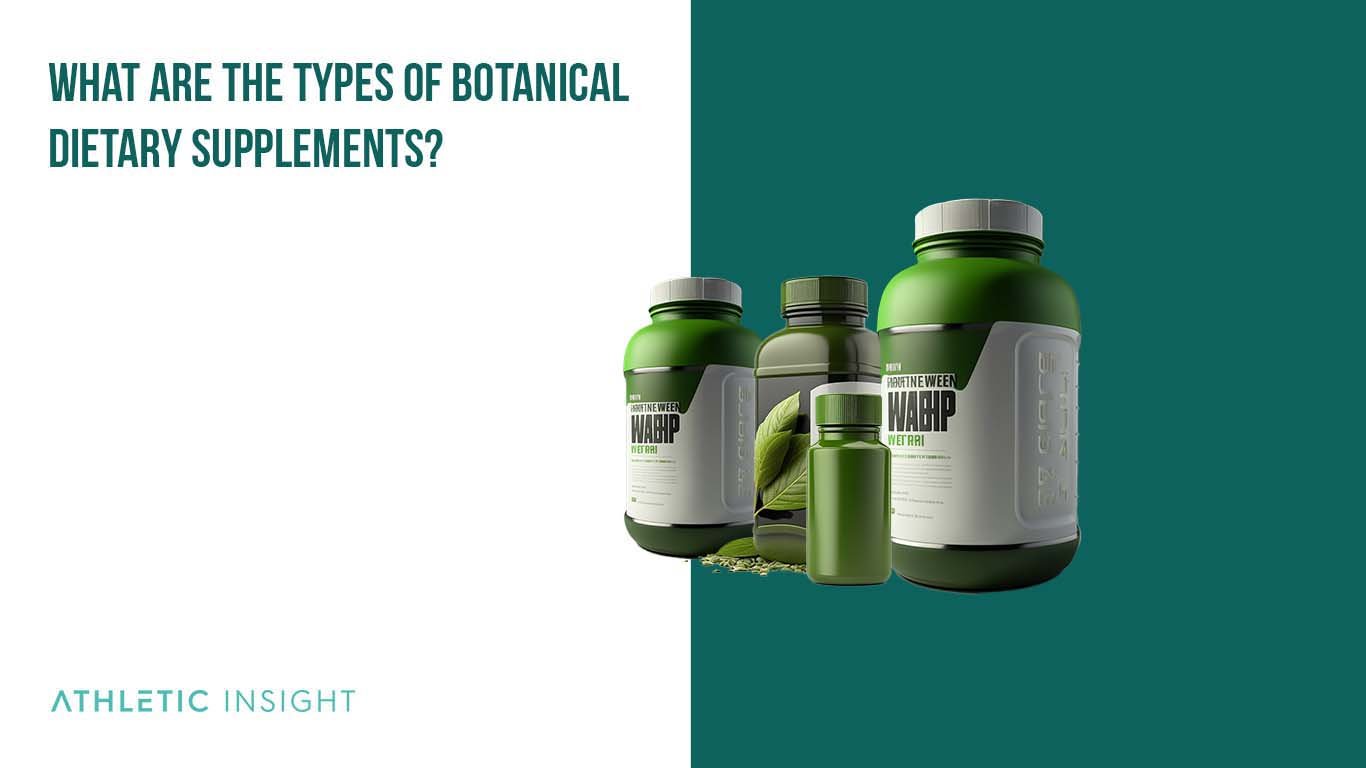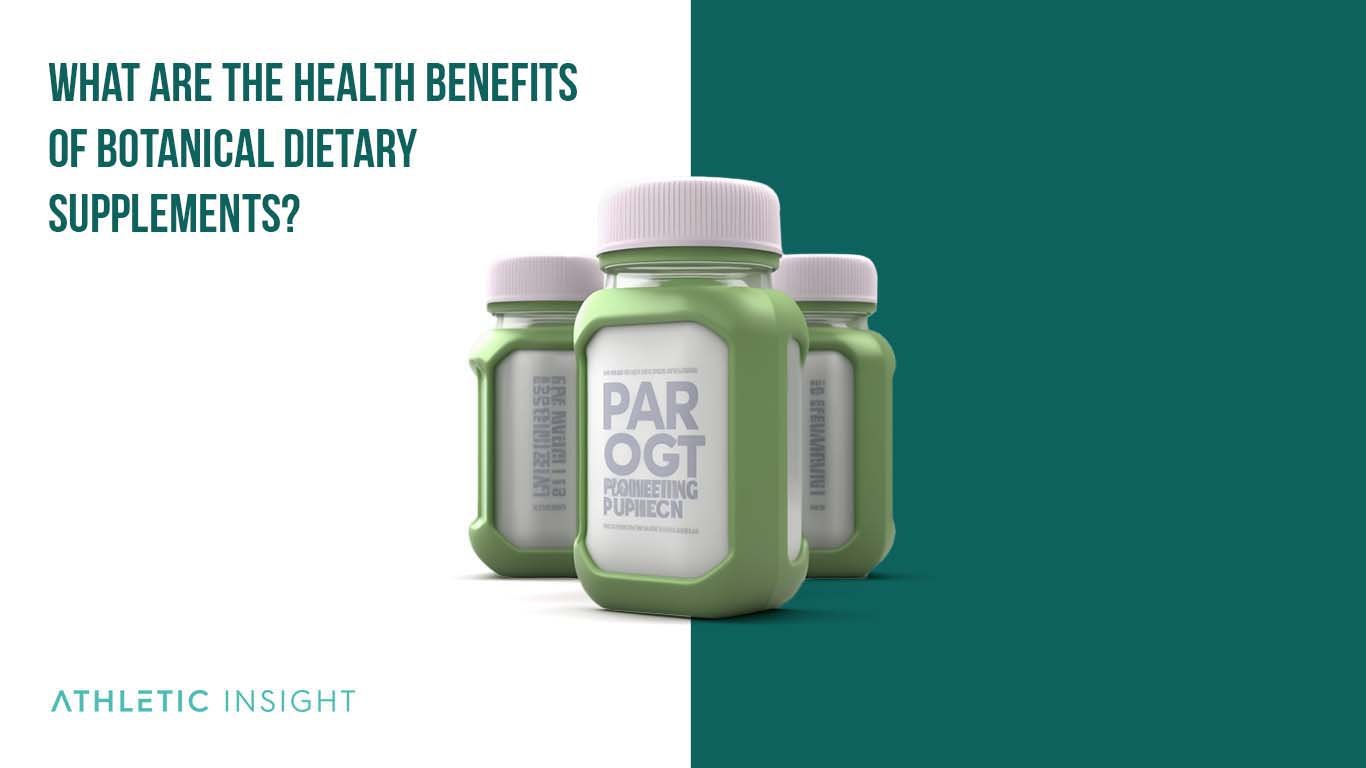Botanical dietary supplements have gained significant attention in recent years, as more people seek natural solutions to improve their health and well-being. This comprehensive guide will go into the intricacies of botanical dietary supplements and explore their various benefits and potential risks.
What is a Botanical Dietary Supplement?
A botanical dietary supplement is a type of nutritional supplement derived from plant-based sources. These supplements contain an array of biologically active compounds that provide various health benefits such as immune support, increased cognition, inflammation reduction, and improved digestion. They can be found in multiple forms, such as tablets, capsules, and liquids, catering to individual preferences and requirements.

What is the other term for Botanical Dietary Supplement?
Another term for botanical dietary supplement is herbal or plant-based nutritional supplement, emphasizing the natural origins of these products.
What does a Botanical Dietary Supplement do?
Botanical dietary supplements serve to enhance overall health and well-being by providing plant-based nutrients, antioxidants, and other bioactive compounds. They may help fill nutritional gaps, support immune function, and maintain the proper functioning of bodily systems.
What is the importance of Botanical Dietary Supplements?
Botanical dietary supplements are important because they offer a natural alternative to synthetic supplements, providing valuable nutrients and compounds that promote optimal health. They can address various health concerns, such as inflammation, stress, and digestion, by harnessing the power of plants.
What are the uses of Botanical Dietary Supplements?
| Botanical Supplements | Uses |
|---|---|
| Turmeric | Anti-inflammatory, antioxidant |
| Ginseng | Energy boost, stress relief |
| Echinacea | Immune support, cold prevention |
There are many uses for botanical dietary supplements whether you take tumeric, ginseng, echinacea, or something else. For example, tumeric is used as an anti-inflammatory and antioxidant, Ginseng is used for energy and stress relief, and echinacea is used for immune support and cold prevention.
What are the Types of Botanical Dietary Supplements?
Botanical dietary supplements come in various forms, including tablets, capsules, softgels, gelcaps, liquids, and powders.
- Tablets
- Capsules
- Softgels
- Gelcaps
- Liquids
- Powders

1. Tablets
Tablets are a common form of botanical dietary supplement, made by compressing plant-based ingredients into a solid form. This format is popular due to its ease of use, accurate dosing, and extended shelf life. Examples include green tea extract and spirulina tablets.
2. Capsules
Capsules contain powdered plant extracts encased in a dissolvable shell, typically made of gelatin or cellulose. They are favored for their tasteless, odorless nature and ease of swallowing. Examples include ashwagandha and milk thistle capsules.
3. Softgels
Softgels are a type of capsule with a soft, gelatinous shell, usually containing liquid extracts or oil-based ingredients. They are known for their enhanced absorption and bioavailability. Examples include flaxseed oil and evening primrose oil softgels.
4. Gelcaps
Gelcaps are similar to softgels, but they often have a slightly firmer texture. They are designed to encapsulate liquid or semi-solid ingredients, ensuring optimal absorption and bioavailability. Gelcaps are preferred by those seeking easy-to-swallow options with minimal taste or odor. Examples include grape seed extract and black seed oil gelcaps.
5. Liquids
Liquid botanical dietary supplements are plant extracts in a fluid form, typically suspended in water, glycerin, or alcohol. This format is ideal for individuals who have difficulty swallowing pills or who prefer faster absorption. Examples include liquid chlorophyll and elderberry syrup.
6. Powders
Powders are dried, ground plant materials or extracts that can be mixed with water, juice, or added to smoothies and other recipes. This versatile form allows for personalized dosing and easy incorporation into daily routines. Examples include maca root powder and wheatgrass powder.
How to Choose the Best Botanical Dietary Supplement?
To select the ideal botanical dietary supplement, consider factors such as the product’s intended purpose, quality, and purity. Look for reputable manufacturers, third-party testing, and transparent labeling. Additionally, consult with a healthcare professional for personalized guidance.
How long does it take for a Botanical Dietary Supplement to work?
The duration required for a botanical dietary supplement to exhibit its effects varies depending on the specific supplement, dosage, and individual factors. Some supplements may produce noticeable results within days, while others may take weeks or even months to yield discernible benefits.
How long should you take Botanical Dietary Supplements?
The duration for which one should take botanical dietary supplements depends on the supplement itself, the individual’s health goals, and the advice of a healthcare professional. Some supplements may be taken for short periods, while others can be incorporated as part of a long-term wellness plan.
What are the health benefits of Botanical Dietary Supplements?
Botanical dietary supplements offer a plethora of health benefits, including supporting immune function, reducing inflammation, boosting energy levels, enhancing cognitive function, and improving digestion.
- Supporting immune function
- Reducing inflammation
- Boosting energy levels
- Enhancing cognitive function
- Improving digestion

What are the health risks of Botanical Dietary Supplements?
While botanical dietary supplements can provide various health benefits, they may also pose certain risks, such as allergic reactions, drug interactions, contamination with harmful substances, overdosing or exceeding recommended dosages, unwanted side effects.
- Allergic reactions
- Drug interactions
- Contamination with harmful substances
- Overdosing or exceeding recommended dosages
- Unwanted side effects
Why is the consumption of Botanical Dietary Supplements considered risky?
Botanical dietary supplements can be considered risky due to factors like inconsistent quality control, potential contamination, and varying potencies. Additionally, individual reactions to specific ingredients and potential drug interactions can further contribute to the risk.
How should You Use Botanical Dietary Supplements?
Always follow the recommended dosage on the product label or as advised by a healthcare professional. Be sure to monitor your body’s response, report any adverse effects, and discontinue use if necessary.
When is the Best Time to Use Botanical Dietary Supplements?
The optimal time to use botanical dietary supplements depends on the specific supplement and its intended purpose. Some may be best taken with meals to enhance absorption, while others might be more effective when consumed on an empty stomach. Consult the product label or a healthcare professional for personalized guidance.
How Are Botanical Dietary Supplements Regulated?
Botanical dietary supplements are regulated by the U.S. Food and Drug Administration (FDA) under the Dietary Supplement Health and Education Act (DSHEA) of 1994. This regulation classifies supplements as a category of food rather than drugs, with manufacturers being responsible for ensuring the safety and accuracy of their product labels.
Why is Botanical Dietary Supplement regulated by FDA?
Botanical dietary supplements are regulated by the FDA to ensure that consumers have access to safe and accurately labeled products. The FDA’s oversight aims to protect public health by monitoring the manufacturing, marketing, and distribution of supplements in the United States.
Are all Botanical Dietary Supplements regulated by the FDA?
Yes, all botanical dietary supplements are subject to FDA regulations. However, the FDA’s oversight is limited by the nature of the DSHEA, which places the onus of ensuring product safety and label accuracy on the manufacturers themselves. The FDA typically intervenes when safety concerns or false claims are identified.
Is it good to take Botanical Dietary Supplements every day?
Whether it is beneficial to take botanical dietary supplements daily depends on the specific supplement, individual health needs, and the advice of a healthcare professional. Some supplements may be appropriate for daily use, while others may be better suited for occasional or short-term consumption.
Is a Botanical Dietary Supplement a Vitamin?
No, a botanical dietary supplement is not a vitamin, although some may contain vitamins. Botanical supplements are derived from plant sources and encompass a wide range of compounds, including vitamins, minerals, antioxidants, and other bioactive constituents.
Are Botanical Dietary Supplements used for weight-loss?
Some botanical dietary supplements are marketed for weight loss, as they may contain ingredients that support metabolism, appetite suppression, or fat burning. However, the efficacy of these supplements varies, and they should be used in conjunction with a balanced diet and regular exercise for optimal results.
Are Botanical Dietary Supplements safe?
Botanical dietary supplements can be safe when sourced from reputable manufacturers and used as directed. However, potential risks exist, such as contamination, allergic reactions, and drug interactions. It is essential to consult with a healthcare professional before starting any new supplement regimen, especially if you have pre-existing health conditions or are taking medications.



